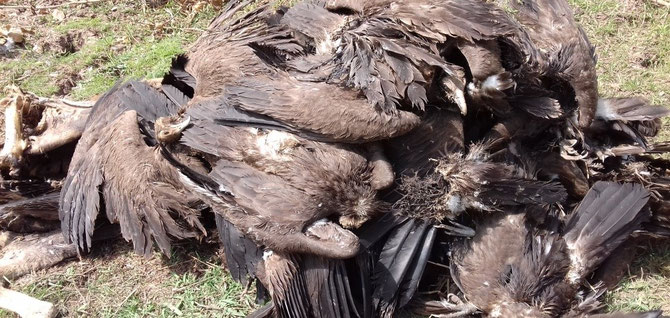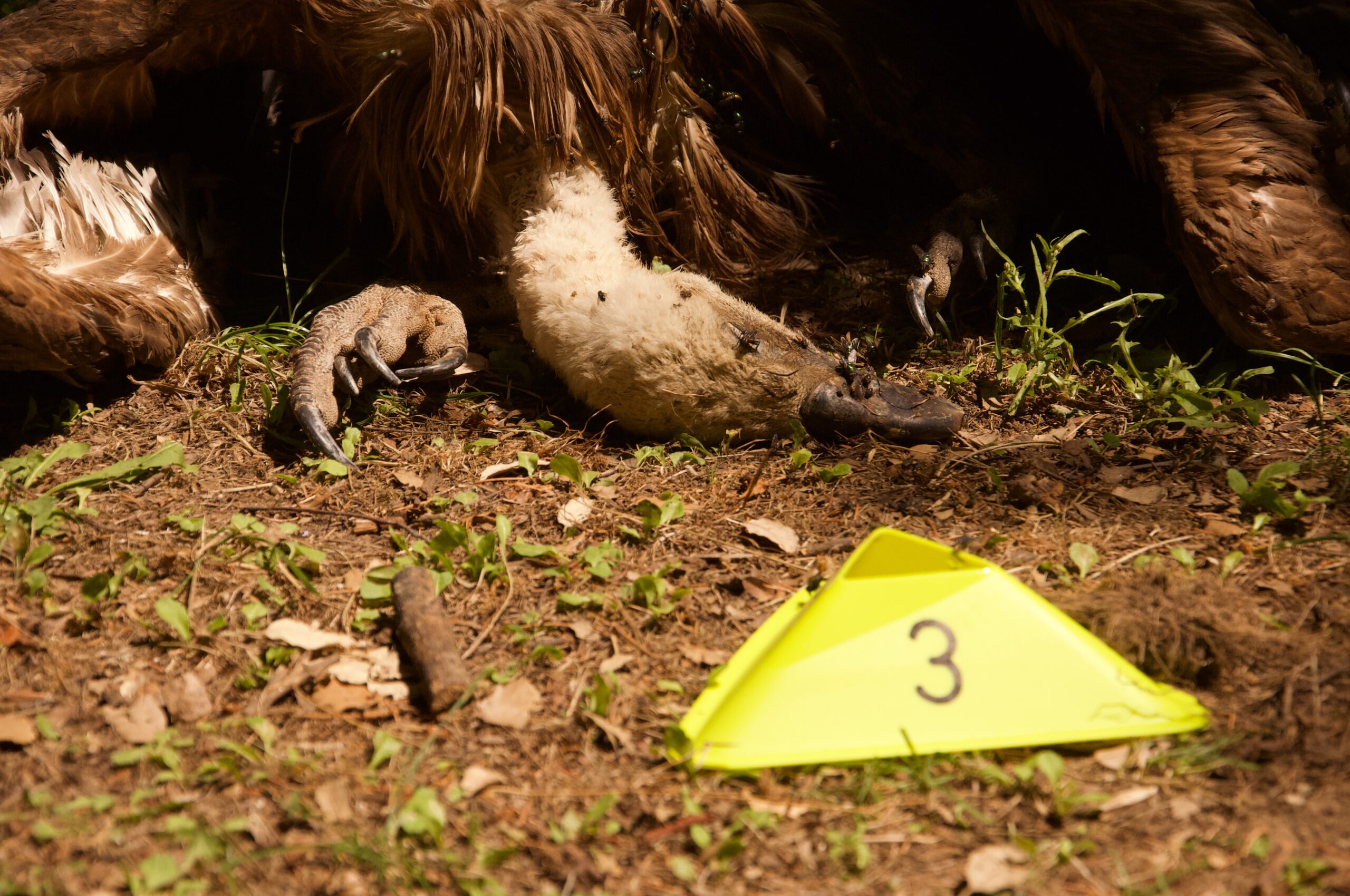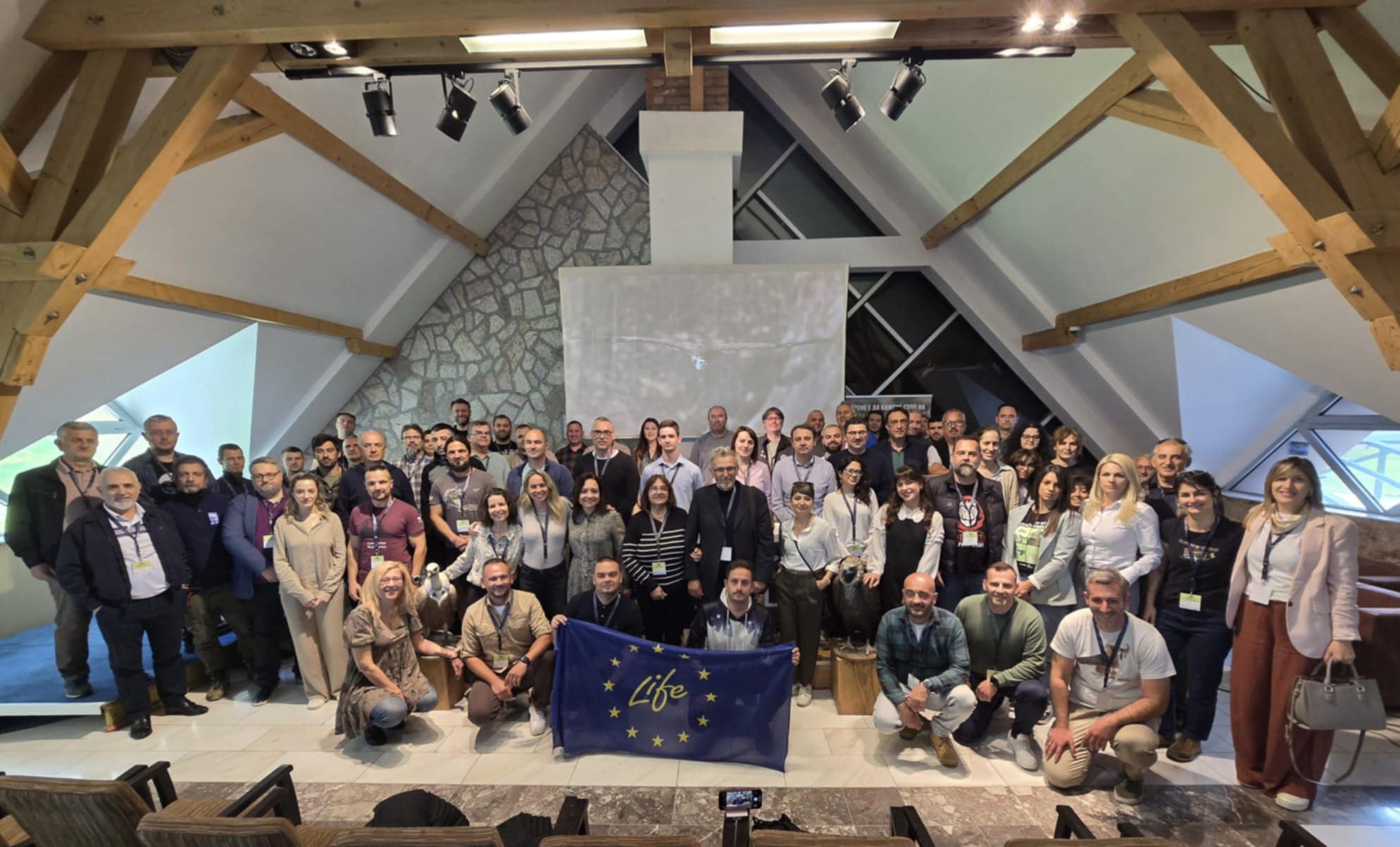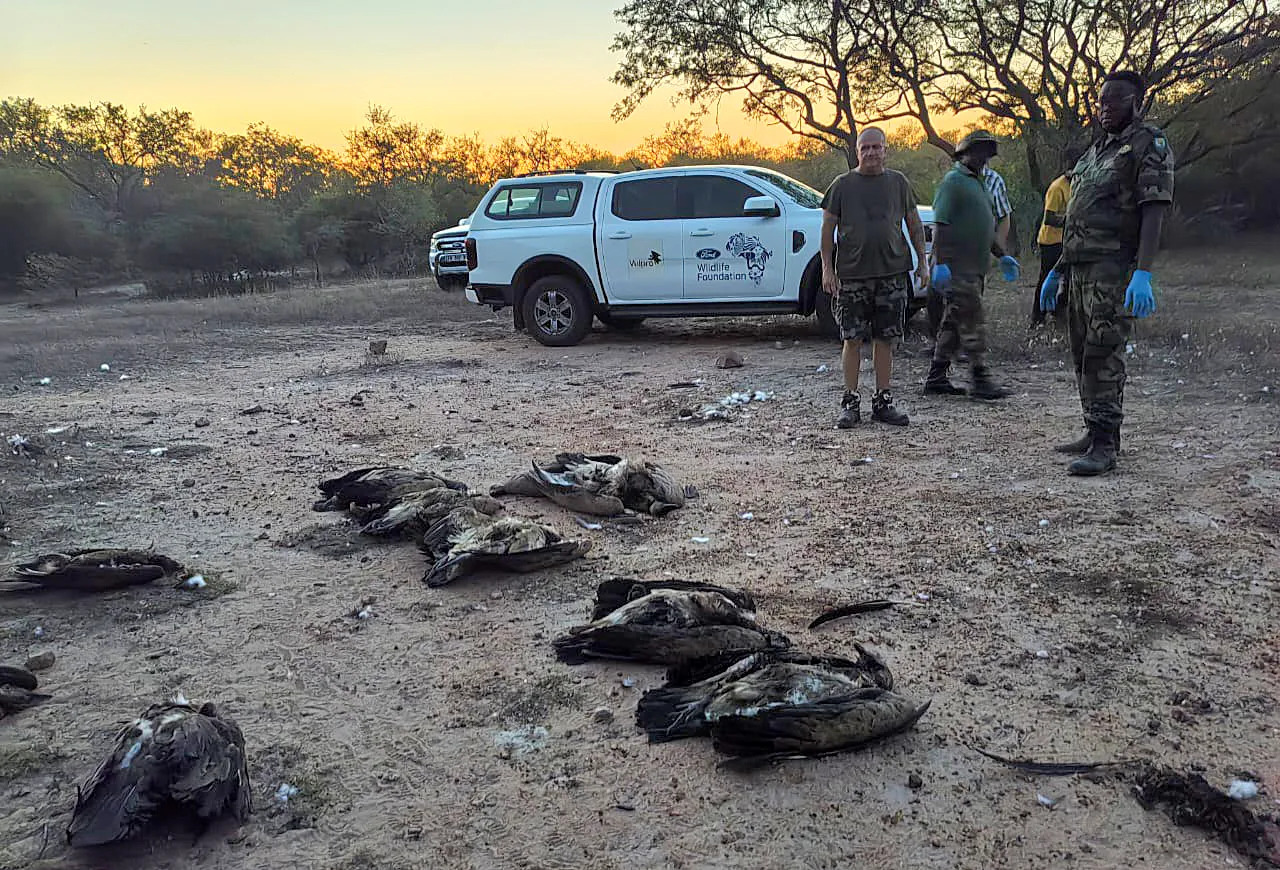
The biggest vulture mortality event in the world unfolded in Guinea-Bissau during the beginning of 2020, with an estimate of over 2000 Critically Endangered Hooded Vultures (Necrosyrtes monachus) losing their lives due to intentional poisoning. The Vulture Conservation Foundation (VCF), the IUCN’s Vulture Specialist Group (VSG) and BirdLife International (BLI) have been actively following the incident, pushing the authorities to take urgent action and supporting the investigation. The toxicology results and criminal investigation confirmed that the vultures were deliberately poisoned for belief-based use, and some suspects have been recently identified.
Criminal investigation
Over 2000 vultures were poisoned and killed in just the span of three months, between February and April, across eastern Guinea-Bissau, resulting in the largest ever mass vulture mortality event in the world. Evidence collected during the field missions organized by the authorities confirmed that the vultures had been killed deliberately using poisoned baits. Reports from witnesses corroborate that vultures were poisoned intentionally, placing poison baits around villages so that that vulture parts could be collected for belief-based use (ritual use). In some parts of Africa, some communities believe that possession of vulture heads is thought to bring good fortune or even special powers. In Guinea-Bissau at least 200 of the poisoned vultures have been found without their heads. Additionally, there have been reports that high demand for vulture body parts, either internally or from neighbouring countries like Senegal have played a role. Now, thanks to the criminal investigation, the police have identified some individuals that could be associated with the incident. The investigation is still ongoing.
Toxicology Results
The VCF and partners managed to transfer three Hooded Vulture carcasses with the last outgoing flight to Lisbon before the COVID-19 lockdown to determine the cause of death and inform the ongoing investigation. The University of Lisbon performed a necropsy and collected samples for toxicology analysis. The first analysis determined that a type of carbamate was used to kill the vultures, and further analysis revealed that methiocarb was the exact substance used. This carbamate pesticide has hazardous effects on wildlife and nature, and is banned in Europe but commonly used in Africa, including Guinea-Bissau.
Mass poisonings in Africa are a common problem

The majority of the vulture populations in Africa are in trouble, mostly due to the threat of poisoning, and cannot bear further losses. Today, seven of Africa’s vulture species are on the edge of extinction, with four species considered Critically Endangered, while three other species are Endangered. The illegal trade of vulture parts in Africa accounts for 29% of reported vulture deaths. Several communities consider the heads of Hooded Vultures as good luck charms, making the species among the most traded for belief-based use, and as they become rarer due to this harmful practise, the prices are also rising. Hooded Vultures in Guinea-Bissau amount to about 20% of the global population of this Critically Endangered species, and due to these latest poisoning incidents, it is estimated that more than 1% of the world’s Hooded Vultures may have been lost.
Mass vulture poisonings in Africa cause a devastating effect on the regional population of species, but also the surrounding environment, as vultures are essential for a healthy and functioning ecosystem and poison baits adversely affect other wildlife and public health.
This recent blow to vulture conservation requires urgent action. Although it seems that the killings have stopped in Guinea-Bissau for the time being, it is still necessary to take measures to prevent further losses and build capacities to respond to such instances accordingly. It is essential to raise awareness among local stakeholders about the importance of vultures and discontinue the misconceptions that drive the illegal trade of vultures. Authorities in Guinea-Bissau and elsewhere should invest in enforcing anti-poisoning legislation, building capacity to tackle this harmful threat and hindering cross-border and local trade. VCF, VSG and BLI wish to help West African countries and are exploring opportunities to magnify their support to develop and implement national action plans to conserve vultures and prevent their extinction.
Annex
Toxicology and necropsy report performed by the University of Lisbon.pdf
Toxicology and necropsy report_Universit
Adobe Acrobat Document 725.0 KB



